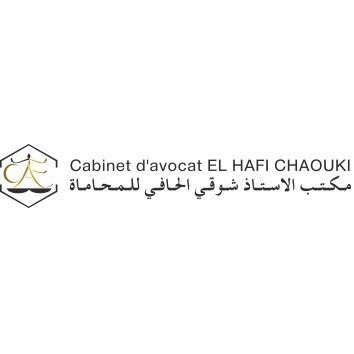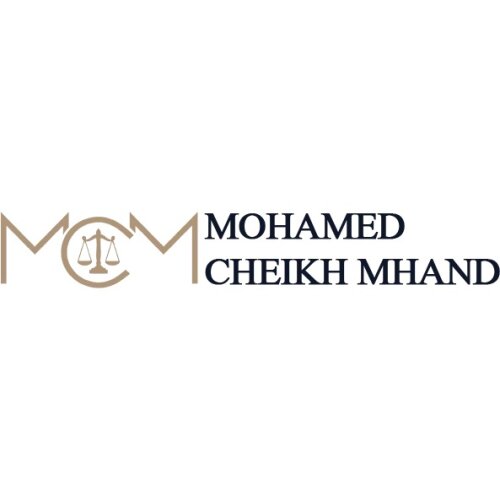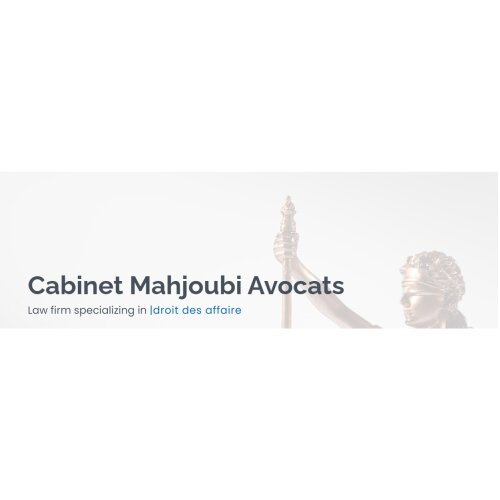Best Energy Regulatory Law Lawyers in Tangier
Share your needs with us, get contacted by law firms.
Free. Takes 2 min.
List of the best lawyers in Tangier, Morocco
About Energy Regulatory Law in Tangier, Morocco
Energy Regulatory Law in Tangier, Morocco comprises the set of legal rules and standards that govern the production, distribution, and consumption of energy. This field draws on national Moroccan laws and covers electricity, renewable energy, petroleum, and natural gas sectors. Strategic for both the public and private sectors, Energy Regulatory Law helps regulate how energy companies operate, sets out rights and responsibilities for consumers, ensures environmental compliance, and encourages sustainable development. The port city of Tangier's role as a gateway for energy imports and a hub for renewable energy projects makes energy regulation particularly important in the region.
Why You May Need a Lawyer
There are various scenarios in which individuals and businesses in Tangier may need legal advice concerning Energy Regulatory Law. Common situations include compliance issues with energy regulations, applying for or renewing energy permits, land use and development in energy projects, negotiating energy contracts, and addressing environmental impact requirements. Both multinational firms and local businesses may face disputes over tariffs, grid access, or licensing, while residents can seek help concerning consumer protection in electricity or gas supply services. A lawyer specializing in Energy Regulatory Law can assist with navigating complex administrative procedures, representing clients before regulatory authorities, and ensuring that their interests are protected.
Local Laws Overview
The Moroccan legal framework for energy is shaped by national legislation but has particular relevance to Tangier due to its economic significance. Key laws include Law 13-09 on Renewable Energies, which opens energy production to private investors and supports green energy initiatives, and Law 48-15, which organizes the national electricity sector and ensures regulation by the Moroccan Electricity Regulatory Authority (ANRE). The National Office of Electricity and Drinking Water (ONEE) also has crucial regulatory responsibilities. Local implementation often involves the Wilaya of Tangier and municipal authorities for permits and environmental assessments. Environmental protection is governed by Law 12-03 on Environmental Impact Assessment, which particularly affects large energy projects. For cross-border activities in Tangier, customs and import-export regulations are also relevant.
Frequently Asked Questions
What is the main regulatory body for energy in Morocco?
The main regulatory body is the Moroccan Electricity Regulatory Authority known as ANRE. It oversees the electricity and natural gas markets, ensures fair competition, and issues relevant licenses.
Can foreign companies participate in energy projects in Tangier?
Yes, foreign entities can participate in energy projects, especially in the renewable sector, subject to Morocco’s investment regulations and compliance with energy laws.
What laws govern renewable energy in Tangier?
Renewable energy activities are primarily regulated by Law 13-09, which allows private production of renewable electricity, together with specific implementation decrees and local planning rules.
Do I need a permit to build a solar or wind project?
Yes, permits are required. The process involves approvals from national agencies like the Ministry of Energy, ONEE, ANRE, and local authorities, as well as environmental clearances.
What are the environmental requirements for energy projects?
Projects must comply with Law 12-03, which requires an environmental impact assessment, public consultations, and ongoing monitoring for qualifying energy developments.
How are electricity tariffs regulated?
Tariffs are set or approved by ANRE and ONEE, ensuring they are fair for both providers and consumers. Rate adjustments may involve public consultation or regulatory review.
How are disputes in the energy sector resolved?
Disputes may be settled through negotiation, mediation, Moroccan courts, or arbitration, depending on the contract terms and regulatory procedures in place.
What rights do energy consumers have in Tangier?
Energy consumers are protected by national regulations, which guarantee reliable service, fair billing, and recourse for complaints or disputes with energy suppliers.
Are there incentives for renewable energy investment?
Morocco offers incentives such as tax exemptions, customs duty relief, and support for project development in the renewable sector, particularly solar and wind energy.
How can I challenge a regulatory decision affecting my energy project or business?
You may file an appeal or objection with the relevant regulatory authority. Seeking legal assistance is recommended to ensure compliance with procedures and to build a strong case.
Additional Resources
Several organizations and official bodies can offer guidance or information related to Energy Regulatory Law in Tangier: - Moroccan Ministry of Energy Transition and Sustainable Development - Moroccan Electricity Regulatory Authority (ANRE) - National Office of Electricity and Drinking Water (ONEE) - Regional Investment Center of Tangier-Tetouan-Al Hoceima - Moroccan Agency for Sustainable Energy (MASEN) - Chamber of Commerce, Industry, and Services of Tangier
Next Steps
If you require assistance with Energy Regulatory Law in Tangier, start by clearly identifying your issue. Gather all relevant documentation, such as contracts, permits, correspondence, and regulatory notices. Consult with a qualified legal expert specializing in energy law who understands local and national regulations. You can approach the Bar Association of Tangier for referrals or seek recommendations from business organizations. Legal professionals can advise you on your rights, draft necessary documents, represent you before authorities or in court, and help ensure your projects comply with all legal requirements. Early legal intervention often reduces risks, prevents costly delays, and facilitates smoother project execution in the energy sector.
Lawzana helps you find the best lawyers and law firms in Tangier through a curated and pre-screened list of qualified legal professionals. Our platform offers rankings and detailed profiles of attorneys and law firms, allowing you to compare based on practice areas, including Energy Regulatory Law, experience, and client feedback.
Each profile includes a description of the firm's areas of practice, client reviews, team members and partners, year of establishment, spoken languages, office locations, contact information, social media presence, and any published articles or resources. Most firms on our platform speak English and are experienced in both local and international legal matters.
Get a quote from top-rated law firms in Tangier, Morocco — quickly, securely, and without unnecessary hassle.
Disclaimer:
The information provided on this page is for general informational purposes only and does not constitute legal advice. While we strive to ensure the accuracy and relevance of the content, legal information may change over time, and interpretations of the law can vary. You should always consult with a qualified legal professional for advice specific to your situation.
We disclaim all liability for actions taken or not taken based on the content of this page. If you believe any information is incorrect or outdated, please contact us, and we will review and update it where appropriate.















